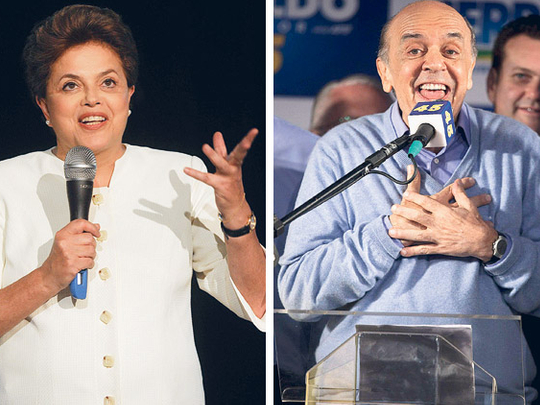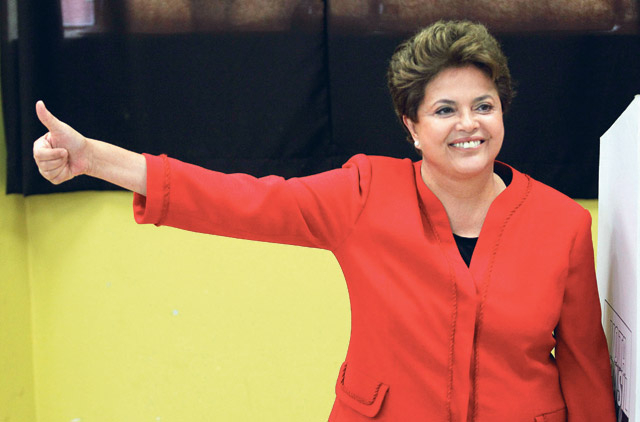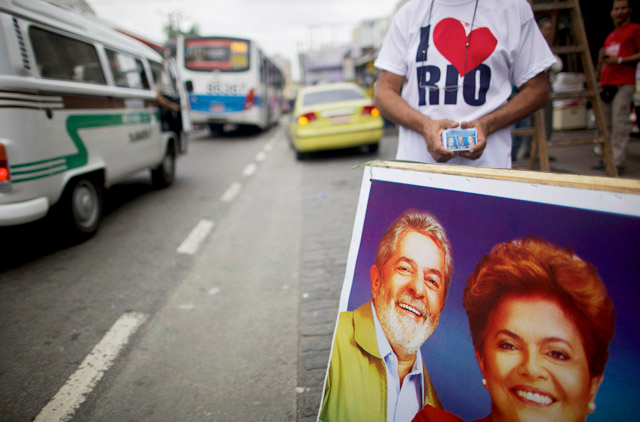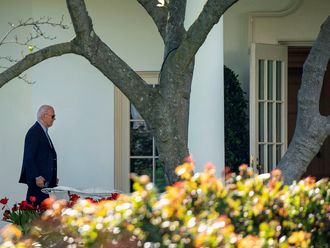
Sao Paulo: Official vote returns show Brazil's leading presidential candidate Dilma Rousseff will be forced into second-round contest.
Brazil's Supreme Electoral Court reports Sunday that with 97.5 per cent of the vote counted, Rousseff needs 3.4 per cent for a first-round win, a mathematically impossibility.
Rousseff will face rival Jose Serra in the October 31 second round vote.
Serra has 32.8 per cent of the vote with nearly all ballots in. He is a former senator and governor of Sao Paulo state.
Rousseff told supporters in Brasilia she was confident she could win the second round.
Lula's pick favoured
Brazilians are expected to place their trust in President Luiz Inacio Lula da Silva and vote for his hand-picked successor on Sunday, possibly giving her an outright victory without needing a runoff vote.
Rousseff, a 62-year-old former leftist militant aiming to become the first woman to lead Brazil, is seeking a strong mandate to continue Lula's mix of market-friendly policies and social programs that have nurtured a long boom in Latin America's largest economy.
Yet she does not have Lula's charisma nor his emotional bond with voters, and that could undermine her ability to lead a broad coalition government at a time when Brazil needs more economic reforms to keep growing strongly.
"She is the technically competent manager Brazil needs to manage all the resources we now have," said Manuel Javen, a 45-year-old public school teacher in the capital Brasilia. "But we'll also vote for her because of the fidelity and friendship she has with Lula."
He hopes that Lula, who is not allowed to seek a third consecutive term, will return as president in 2014.
This presidential campaign is the first since Brazil returned to direct elections in 1989 that Lula has not been on the ballot. He lost three times before winning in 2002.
Voting starts at 8am (1100 GMT) from the Amazon rain forest to the vast central farmlands and the violence-plagued slums of beachside Rio de Janeiro.
Brazil is the world's fourth most populous democracy and voting is electronic, meaning that results could be in before Monday.
The pragmatic, left-leaning Rousseff has done little more than stick to a safe script in speeches and debates, riding Lula's sky-high approval ratings of around 80 per cent and a purring economy that has created a record number of jobs.
A twice-divorced cancer survivor, Rousseff surged ahead of main rival Jose Serra of the centrist PSDB party as soon as campaigning started in earnest in July and has never really been threatened since.
But a spate of ethics allegations against the ruling Workers' Party and a former Rousseff aide have slowed her momentum and given Serra hope of avoiding a humiliating first-round knockout.
She has also lost support among evangelical Christians, a key voting bloc, in recent weeks amid criticism over her past support for decriminalising abortion.
Riding the Lula wave
Polls show Rousseff would win a runoff on October 31 by a landslide, but a first-round victory would boost her mandate, give her more time to form a government and deal a heavy blow to the opposition.
Former environment minister Marina Silva, who was born into poverty in the Amazon forest and is the Green Party's candidate, has picked up votes in recent weeks to stand at around 15 per cent, but has little chance of reaching a runoff.
Lula, a 64-year-old former shoeshine boy and metalworker, has dominated the campaign, exhorting voters with his gruff voice and everyman charm to shift their faith to Rousseff.
She has been helped by the limp campaign of Serra, whose attempts to persuade Brazilians of the need for change have floundered as he repeatedly switched his message and failed to land any significant blows against either Rousseff or Lula.
The former health minister, who at 68 may be running his last campaign, has vowed to lead a centrist team that would probably be less interventionist than a Rousseff government.
Lula's popularity is also expected to give the ruling coalition, which is dominated by the Workers' Party and centrist PMDB, bigger majorities in Congress that could make it easier for Rousseff to push through economic reforms.
All seats in the lower house of Congress are up for grabs on Sunday as well as more than half of seats in the Senate, where polls predict the ruling coalition could reach the 60 percent threshold needed to pass constitutional reforms.
But Rousseff, who many believe will usher in a bigger state role in some areas of the economy, has signaled she does not think Brazil needs major structural reforms such as overhauling its bloated social security system and civil service.
Instead, many expect her to focus on less ambitious goals of raising government efficiency and tackling bureaucratic obstacles to infrastructure projects that Brazil badly needs as it prepares to host the 2014 World Cup and 2016 Olympic Games.














